#victorian writers
Explore tagged Tumblr posts
Text
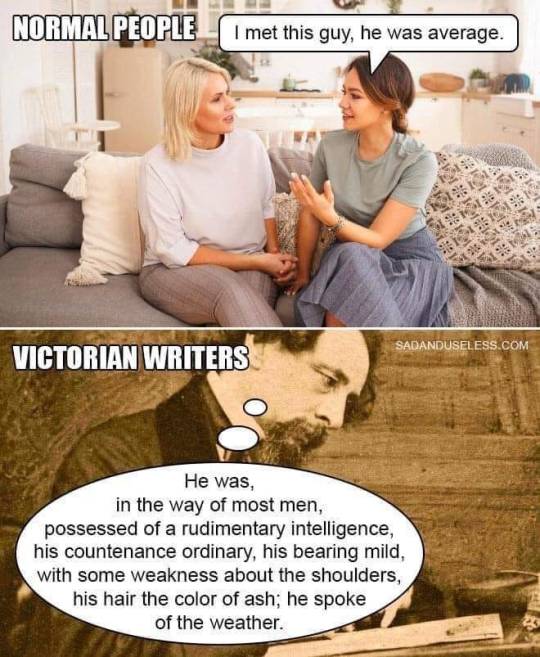
#Team Victorian writers
16 notes
·
View notes
Text
In 1847 the stereotypes for male and female writers were very rigid. Critics expected from a male writer strength, passion, and intellect, and from a woman writer they expected tact, refinement, and piety. They depended on these stereotypes so much, in fact, that they really didn't know how to proceed, what to say, or what to look for in a book if they were unsure of the author's sex.
So Jane Eyre created a tremendous sensation, and it was a problem for the Brontës. The name Currer Bell could be that of either a man or a woman and the narrator of Jane Eyre is Jane herself. The book is told as an autobiography. These things suggested that the author might have been a woman. On the other hand, the novel was considered to be excellent, strong, intelligent and, most of all, passionate. And therefore, the critics reasoned, it could not be written by a woman, and if it turned out that it was written by a woman, she had to be unnatural and perverted.
The reason for this is that the Victorians believed that decent women had no sexual feelings whatsoever—that they had sexual anesthesia. Therefore, when Jane says about Rochester that his touch "made her veins run fire, and her heart beat faster than she could count its throbs," the critics assumed this was a man writing about his sexual fantasies. If a woman was the author, then presumably she was writing from her own experience, and that was disgusting. In this case we can clearly see how women were not permitted the authority of their own experience if it happened to contradict the cultural stereotype.
But even more shocking than this to the Victorians was Jane's reply to Rochester, a very famous passage in the novel. He has told her he is going to marry another woman, an heiress, but that she can stay on as a servant. Jane answers him thus:
"I tell you I must go," I retorted, roused to something like passion. "Do you think I can stay to become nothing to you? Do you think I am an automaton, a machine without feeling and can bear to have my morsel of bread snatched from my lips and my drop of living water dashed from my cup? Do you think because I am poor, obscure, plain and little, I'm soulless and heartless? You think wrong. I have as much soul as you and full as much heart. And if God had gifted me with some beauty and much wealth, I should've made it as hard for you to leave me as it is now for me to leave you. I am not talking to you now through the medium of custom, conventionality, nor even of mortal flesh. It is my spirit that addresses your spirit, just as if both had passed through the grave and we stood at God's feet equal—as we are."
This splendid assertion violated not only the standards of sexual submission, which were believed to be women's duty and their punishment for Eve's crime, but it also went against standards of class submission, and obviously against religion. And this sort of rebellion was not feminine at all.
The reviews of Jane Eyre in 1847 and 1848 show how confused the critics were. Some of them said Currer Bell was a man. Some of them, including Thackeray, said a woman. One man, an American critic named Edgar Percy Whipple, said the Bells were a team, that Currer Bell was a woman who did the dainty parts of the book and brother Acton the rough parts. All kinds of circumstantial evidence were adduced to solve this problem, such as the details of housekeeping. Harriet Martineau said the book had to be the work of a woman or an upholsterer. And Lady Eastlake, who was a reviewer for one of the most prestigious journals, said it couldn't be a woman because no woman would dress her heroines in such outlandish clothes.
Eventually Charlotte Brontë revealed her identity, and then these attacks which had been general became personal. People introduced her as the author of a naughty book; they gossiped that she was Thackeray's mistress. They speculated on the causes of what they called "her alien and sour perspective on women." She felt during her entire short life that she was judged always on the basis of what was becoming in femininity and not as an artist.
-Elaine Showalter, ‘Women Writers and the Female Experience’ in Radical Feminism, Koedt et al (eds.)
#elaine showalter#charlotte bronte#jane eyre#sex roles#female writers#women’s history#women in literature#victorian
2K notes
·
View notes
Text
The shadow and light Game
Enemies to lover
Servant x blind fem!reader
reader has a shy character in this story
Music to listen to for the atmosphere: People help the people_Birdy

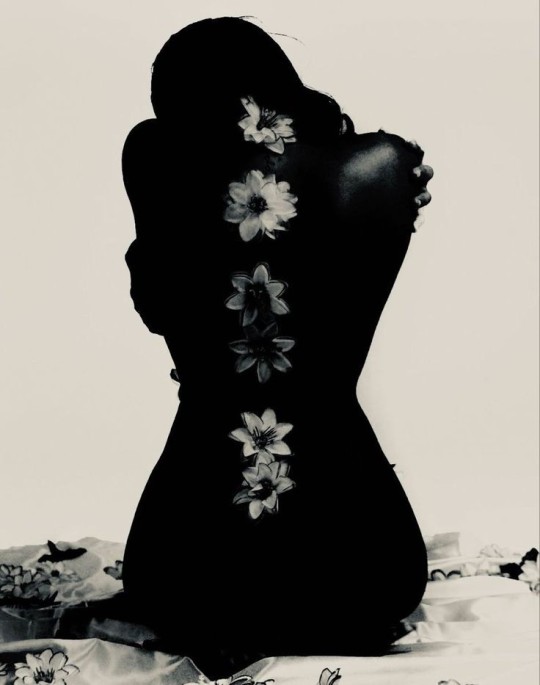
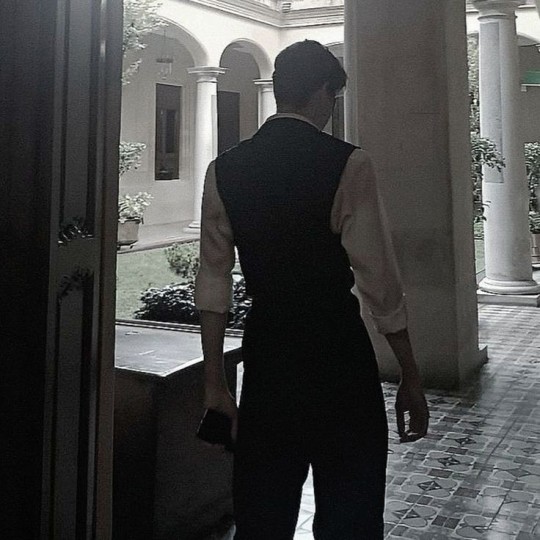

..................................................................................
The morning mist clung to the stone walls of the annex, isolated and cold, far from the grandeur of the Delarive estate. The place had been designed to keep both rumors and their target at bay: Y/N Delarive, the cursed youngest daughter. They said she carried a curse, that she had sold her soul to enrich her family. Yet, for those who had dared to get close, there was neither magic nor malediction. Only a blind young woman, tormented and locked away in a gilded cage.
Y/N sat in her favorite chair, facing a window whose light she could only guess. The slightest noise irritated her; the arrival of a new servant had already sent her into a rage. It was always the same—her parents sent spies to watch her or break her further. But this one, she would not allow to stay.
The door opened. Slowly, without the hurried steps of a fearful servant. The approaching footsteps were heavy yet controlled, as if the person wanted to be noticed. Y/N tightened her grip on the familiar weight of a wooden clock in her frail but determined hands.
“I want no one here!” she screamed before throwing the object with all her strength.
The impact echoed. The man had taken the hit directly to his face. Y/N heard a muffled groan, followed by a heavy silence. No cries, no stumbling retreat. Just that silence—then a deep, composed voice, tinged with a hint of surprise.
“Impressive aim, for someone who can’t see.”
Y/N froze. She had expected apologies, pleas, or a hasty retreat. Not a response so calm, nor a trace of amusement in his tone.
Cassius straightened, pressing a hand to his forehead, where a small cut was already bleeding. He had heard of the youngest Delarive’s tantrums, her fits of rage, her explosive outbursts. None of it had prepared him for this encounter. Behind the mask of suspicion and fury, he sensed something else. Not the madness people accused her of—but a deep, ingrained fear. Almost tangible.
He stepped forward, deliberately closing the distance between them. “I am your new servant,” he declared. Dropping the suitcase he carried at his feet, he added, “And I’m not leaving.”
Y/N clenched her fists. “They all leave.”
“Maybe,” he replied, crossing his arms, “but not today.”
She heard a faint sound—the rustling of a handkerchief as he pressed it to his wound. He wasn’t trying to explain himself, nor impose his presence. And for a reason she couldn’t quite grasp, that unsettled her.
Cassius said nothing, but he observed. The frailness of her wrists, the tension in her shoulders—like a wounded animal, ready to bite to survive. A quiet rage stirred within him. Not against her. But against those who had reduced her to this state. Yet, he kept his mask of indifference. He wasn’t here to save her. He had a vengeance to fulfill.
Y/N was already retreating into silence. “Fine, stay,” she finally said, her voice trembling slightly. “But don’t think I’ll make it easy for you.”
Cassius allowed a fleeting smile, though she couldn’t see it. “It wouldn’t be interesting otherwise.”
He turned to unpack his belongings. But at the edge of his mind, a persistent thought lingered: this family, the ones who had stolen everything he once loved, deserved to suffer. And the key to his revenge was here, in this cold, forgotten annex.
Yet, as he glanced at Y/N from the corner of his eye, he felt something he couldn’t quite name. A curiosity. Perhaps even a respect he hadn’t anticipated. She was far stronger than the rumors suggested.
But he wasn’t here to be distracted.
Not yet
---
Days had passed in a strange monotony. Y/N remained in the shadows of her room, a place she knew as well as her own skin. It was there that she felt protected, even though every movement was a battle she waged against herself. She had never been so reluctant to live, to eat, to wash. The memories of childhood abuse were deeply ingrained, like invisible chains. Anything that came from another human being was suspect. Everything, even food.
Cassius, on the other hand, had understood the situation more quickly than he would have liked. He knew that Y/N refused to eat, that she even refused to wash, that she was trapped in this cycle of suffering out of fear and distrust. He understood that her resistance did not come from a mere desire to be difficult. It was deeper than that. She had been scarred by her past, by a life of physical and emotional violence. And he was here, a new presence in her closed-off world, an intruder she could not accept.
Every morning, when he entered the room, he found her trying to escape reality. The sheets were tangled around her, and she remained curled up, eyes closed, as if she could hide from the entire world. He had seen the same scene play out day after day. She did not eat, barely drank, and recoiled from any form of contact, even from the most basic care.
One morning, after placing the tray of food beside her bed, he sat near her, waiting silently. The tension between them was palpable. Y/N did not react. She knew he was waiting for her to take the food, but her refusal was absolute. He had seen her in moments of rage when she threw the food against the walls or at him, hoping he would leave, that he would give up. But he had no intention of leaving. Not this time.
At last, he stood, walked to the door, and returned with a basin of warm water. “Y/N,” he said in a calm voice, “it’s time.”
She turned sharply toward him, her hands trembling, panic flashing in her voice. “No! I don’t want you to touch me. I don’t want your help.”
But this time, Cassius had not come to negotiate. He leaned forward slowly, grasping the edge of the blanket and pulling it gently, as if he were nothing more than a passing breeze. “You don’t have a choice. You will wash, and you will eat.”
She bolted upright, eyes wide, pushing herself up on her elbows with surprising speed. “Don’t touch me!” she screamed, nearly out of control, the terror evident in her voice. She grabbed a pillow and threw it at him, but he dodged it effortlessly.
She tried to get up and flee, but he gently forced her to stay in bed, his authority calm yet unyielding. “Calm down,” he said, holding her firmly but without violence. “I’m not going to hurt you.”
She struggled against him, screaming, but he did not let go. His hands firmly grasped her wrists, never tightening enough to cause pain. Tears welled in her eyes, but she could not break free from his hold. Y/N was weaker than she thought. She didn’t realize that everything she feared from him, everything she imagined in her mind, was nothing more than ghosts. He wasn’t here to hurt her—not in the way she feared. But she didn’t understand that. Not yet.
“I’m here to help you,” he murmured, his voice almost gentle as he kept his hold on her. “Not to harm you.”
She tensed, her breathing ragged, her heart pounding wildly. She trembled, but it was more from fear than from cold. And in that silent struggle, Cassius felt her resistance begin to crack. It wasn’t just pride or distrust. It was pure fear—the fear of having lost control over everything. The fear of being vulnerable again.
She tried one last time to push him away, but her strength failed her. In the end, she collapsed against him, exhausted, her gaze empty as she stared ahead. Cassius did not release his hold immediately. Instead, he supported her gently, one hand firmly placed on her shoulder, as if to remind her that he was there. But he did not force her. He waited. He waited for her to realize that he wasn’t here to hurt her. Not this time.
“You don’t have to be afraid of me, Y/N,” he said, almost a whisper. “You won’t be alone in this.”
She rolled onto her side, allowing the warmth of the water he poured gently over her face to wash over her. Y/N closed her eyes, silent tears slipping down her cheeks. She hadn’t wanted to surrender. She hadn’t wanted to accept his presence. But in that quiet surrender, there was a fragility he couldn’t ignore.
Finally, she let out a deep sigh, her resistance breaking, and allowed herself to be taken by what he offered—a little care, a little warmth, and perhaps, just a little trust.
---
The next day, Cassius entered Y/N’s room as usual, a tray of food in his hands. But this time, he immediately noticed something different. She wasn’t curled up under her blankets as she usually was. Instead, she was sitting on the edge of her bed, her bare feet barely touching the floor. Her face was turned toward the faint light from the window, lost in thought.
She didn’t say a word when he placed the tray near her. Yet he noticed that her hands trembled slightly, as if she was gathering all her courage to resist retreating into herself.
“I brought you something to eat, my lady,” he said softly, kneeling beside the tray.
She pressed her lips together, hesitating for a moment before replying. “You’re wasting your time. I won’t make this easy for you.”
He smiled slightly, but there was no arrogance in his expression. “I don’t need you to make it easy. I am patient.”
She let out an annoyed sigh, but there was something softer in her tone—weariness mixed with a hint of resignation. “Why do you persist? I don’t want your help. I don’t want you here.”
Cassius took a spoonful of the steaming soup and held it out to her with calm determination. “You can say whatever you want, my lady. But there’s a difference between what you say and what you need.”
Y/N turned her head toward him, her brows furrowed. She couldn’t see his expression, but she could hear the firmness in his voice. It unsettled her, as if he could see through her words, through her defenses.
“I don’t want you to touch me,” she said, her voice tinged with the slightest trace of fear.
Cassius tilted his head slightly. “And I won’t. You can eat on your own. But if you don’t… then I will do it for you.”
She felt her chest tighten. He wasn’t joking. By now, she knew him well enough to understand that he always kept his promises. And though it frustrated her, a small part of her—just the smallest part—felt strangely relieved by his presence.
After a long silence, she finally reached out and took the spoon. “Fine,” she murmured, a mix of defiance and surrender in her voice. “But it’s not because I trust you.”
Cassius nodded, a flicker of satisfaction in his gaze. “I never said you had to trust me. That will come with time.”
She took a spoonful of soup, then another, in silence. He didn’t say anything, simply watching from a distance, ready to step in if she stopped. But she continued, even though every bite seemed like an immense effort.
When she finally finished, she placed the spoon down with a sigh. “Now, will you finally leave and let me be?”
Cassius stood, retrieving the tray with ease. Before stepping out of the room, he glanced over his shoulder. “I’ll be back in an hour to take you to the bath. I suggest you don’t fight me this time, my lady.”
Y/N opened her mouth to protest, but he was already gone, the door closing behind him.
She clenched her fists, her nails pressing lightly into her palms. He drove her mad. And yet, a strange warmth—one she didn’t understand—began to settle within her.
For the first time, she wondered if she was ready to lower her walls just a little, just to see what he would do.
---
Cassius scrutinized his own reflection in the cracked mirror of the small room he had been assigned. His features were calm, almost neutral, but deep within his eyes, shards of hatred lay buried—an old hatred, hardened by time. He had taken this position for one clear reason: to destroy the Delarives. To take back everything they had stolen from his family.
He remembered the day when everything had crumbled for the Changs. His father, a respected noble, had been dragged through the mud by a wave of accusations orchestrated by the Delarives. The land, the titles, the fortune—everything had been taken from them. His mother had succumbed to illness soon after, broken by humiliation and poverty. Cassius, still a young man at the time, had wandered in the shadows for years, nurturing his vengeance.
When he learned that Y/N Delarive lived alone, isolated in the annex, he knew his chance had finally come. She, the scorned youngest daughter, the one even her own family seemed to want to erase, was his way in. Becoming her servant was a humiliation he was willing to endure for his ultimate goal: their ruin.
Why Y/N?
Because she was their weakness.
Cassius knew that the Delarives’ reputation rested on a carefully maintained façade. A wealthy, powerful, exemplary family. But a blind, unstable daughter, treated like a shadow, could become their greatest liability. If Y/N became a public problem, if the rumors about her spread, if her very existence became an unbearable burden, the Delarives would begin to falter.
By entering her world, he intended to manipulate her, feed her despair, and use her isolation against them. He wanted them to reject her even more violently, to expose themselves to the county as the monsters they truly were. Once they were weakened, he would strike at the heart, revealing the truth about the wealth they had stolen from his family.
But as he got closer to Y/N, he discovered a reality he had not anticipated: she was not just a tool, a weapon to sharpen against them. She was a broken soul, haunted by a life of contempt and solitude.
It had been several days since he had entered her service, and each interaction unsettled him more and more. Y/N was nothing like her brothers, sisters, or father. She had none of their arrogance or cruelty. Instead, she was a wounded creature, hiding behind walls of anger and mistrust.
And yet, she fought. She fought against him, against her own weakness, against the fear that held her captive. He had seen her reject food, refuse to wash, throw objects in fits of almost childlike rage. But beyond those impulsive gestures, he also saw a woman who had learned to survive alone in a house that hated her.
He hadn’t expected his anger to clash with his humanity.
That evening, after Y/N had finally eaten for the first time without resistance, Cassius allowed himself a moment of reflection. He had not yet advanced in his plan. Every fiber of his being screamed at him to focus on his revenge, to remain cold and methodical. But a part of him, small and silent, was beginning to stir.
Was she truly like the rest of her family?
He shook his head, pushing the thought aside. Innocent or guilty, it didn’t matter—she was still a link in the chain that had destroyed his family. By becoming her servant, he had not committed to protecting her. He had committed to bringing down the Delarives.
But for now, he had to remain patient. He had to continue playing the perfect role. Earn Y/N’s trust just enough to guide her where he wanted. No matter if it meant enduring her outbursts or her insults. No matter if it meant walking the fine line between obsession and pity.
As he blew out the candle in his room, his final thoughts were of her, the "young mistress" he addressed not out of respect, but out of irony.
“I will lead you where I want, my lady,” he murmured into the darkness. “Whether you want it or not.”
---
The next morning, the sun timidly pierced through the thick curtains of the annex, casting a soft, pale light into Y/N’s room. She sat on her bed, motionless, listening intently for any sound. Cassius had not entered yet. It worried her, though she would never admit it out loud.
Since his arrival, he had been constant, present like a shadow she couldn’t dispel. And despite her efforts to push him away, he always returned, unwavering. She should have been relieved that he was late. Yet instead, a strange emptiness was growing inside her chest.
Finally, the familiar sound of footsteps echoed in the hallway, and the door creaked open. Cassius entered, carrying another tray of food. As usual, his expression was calm, but his eyes quickly scanned her, as if ensuring she was safe.
“You’re late,” she snapped, her tone sharp, though her voice was weaker than usual.
He raised an eyebrow, amused by her remark. “I didn’t know you were waiting for me, my lady.”
She turned her head away, a faint blush creeping up her cheeks. “I wasn’t waiting. I was merely noting your lack of punctuality.”
He placed the tray near her and settled into a chair, as if this conversation was just part of their usual routine. “You’re observant today. Perhaps you’re simply in a better mood.”
Y/N frowned, irritated by his light tone. “Don’t act as if you know me. You know nothing about me.”
He remained silent for a moment, his eyes softening almost imperceptibly. “You’re right, I don’t know everything. But I observe you, and every day, I learn a little more.”
She clenched the sheets beneath her fists, his words both aggravating and unsettling her. “You’re wasting your time, Cassius. I am not like the others. I am not… normal. You can’t learn anything from me.”
He leaned back in his chair, crossing his arms, his expression turning serious. “Not normal, you say? Because you’re blind? Because your family cast you aside? Is that what you believe, or what they made you believe?”
Her breath caught in her throat. His words, though spoken gently, struck her like a blade. She turned her head away, biting the inside of her cheek to hold back the tears threatening to fall.
His voice softened even more as he continued, “My lady, perhaps you don’t need me. But I need you.”
His declaration unsettled her, and she sat up slightly, her heart pounding. “You… need me? Why?”
Cassius rose from his chair, his gaze unwavering. “Because you are the key. The key to breaking free from the prison your family built around you.”
He paused, then added in a quieter tone, “And perhaps also… because I want to see what you’re capable of, Y/N.”
It was the first time he had spoken her name without the title of "my lady." She didn’t know why it affected her so much, but a strange warmth spread through her chest.
He turned away then, picking up the empty tray from the previous day, and stopped at the door. “Eat. And get ready. I’ll be back to take you outside. You’ve spent too much time locked in here.”
“Outside?” she repeated, alarmed.
He didn’t answer, closing the door behind him.
Cassius knew it was risky. Taking her beyond the annex could draw attention, and the Delarives were not the type to appreciate their "secret" being exposed. But he needed her to leave this prison. Not just for her, but for himself. He had to understand just how far he could push this strange connection forming between them.
Destroying the Delarives was still his goal, but a part of him was beginning to wonder if Y/N, despite her ties to that cursed family, deserved something else.
And that… he couldn’t afford to consider. Not yet.
But the game was changing. Slowly, but surely.
---
Cassius watched as Y/N struggled to stand. Her frail, trembling legs seemed incapable of supporting her weight. It had been months, perhaps years, since she had truly moved beyond her bed, and her body reflected it—every movement was hesitant, clumsy, almost painful to witness.
She clenched her fists, frustrated, and attempted a step. But before she could advance, her knees buckled. Cassius rushed forward, catching her in his arms before she could collapse.
“Let me go!” she growled, but her voice wavered more than it held strength.
He ignored her protest, gently setting her upright again, his hands steady on her shoulders to keep her balanced. “My lady, you are stubborn, but you can’t do everything alone.”
“I don’t need you. I can walk!”
She tried to pull away, but Cassius remained firm. His expression was calm, yet his heart pounded with an intensity he couldn’t explain. Seeing Y/N in this vulnerable state stirred a strange contradiction within him—a mix of admiration for her strength and a pain he refused to acknowledge.
Day after day, he helped her learn to walk again. Each morning, he supported her gently, his hands always ready to catch her if she fell. At first, she resisted, throwing insults and bitter words at him to make him leave. But over time, an unspoken truce settled between them.
Cassius said nothing, but he observed. He noticed the small victories in her movements—the way she managed to stand a little longer each day or the fleeting hint of a smile she refused to let linger when she succeeded in taking a step without his help.
He found himself watching her longer than he should, his gaze drawn to the determination shining on her face. This young woman, whom he had first considered nothing more than a tool in his plan for vengeance, was becoming something else. But he refused to put a name to what he was feeling.
One day, after multiple failed attempts, Y/N finally managed to walk with relative stability. Cassius decided it was time to take her outside.
“Are you ready, my lady?” he asked, adjusting a scarf around her shoulders.
Y/N hesitated, her hand brushing uncertainly against the fabric. “I’m not sure… I’ve never gone out alone before.”
“You’re not alone. I’m here.”
Those simple words, spoken with sincerity, had a calming effect on her. She nodded timidly, and he took her hand in his, guiding her out of the annex.
The outside air was crisp, filled with the songs of birds. Y/N inhaled deeply, as if rediscovering a world she had long forgotten. Cassius walked beside her, his hands firmly placed over hers to guide her along the forest paths.
“It’s different…” she murmured.
“Different how?”
“I don’t know. The air smells… more alive here. And I hear things. Birds. The wind in the trees.”
He glanced at her, fascinated. Every word she spoke revealed a curiosity she had buried under years of fear and mistrust. A strange warmth filled his chest—an emotion he didn’t want to name: pride.
But as they walked, Cassius noticed something in the distance, beyond the grove of trees. A dark figure stood among the shadows, and his instincts screamed at him to investigate.
“Stay here, my lady,” he said quickly.
“Where are you going?” Y/N asked, her voice tense.
“I’ll be back soon. Don’t move.”
Before she could protest, he released her hands and disappeared into the trees.
At first, Y/N remained still, trying to calm the unease growing inside her. But soon, the very sounds of the forest that had fascinated her moments ago became threatening. The rustling leaves, the snapping branches—everything seemed to close in around her.
She reached out, searching for something solid, but the emptiness around her filled her with terror.
“Cassius!” she called out, but only the echo of her voice answered.
Panic took over. She turned in circles, her feet stumbling over roots and stones. Hot tears spilled down her cheeks as fear and anger twisted inside her in an uncontrollable storm.
When Cassius finally returned, he found her curled up on the ground, her hands trembling with rage. As soon as she heard his footsteps, she lifted her head and screamed at him:
“Where were you?! You left me! You left me all alone!”
He immediately knelt beside her, placing a hand on her shoulder. “I’m here now. You’re safe, my lady.”
But she didn’t want to calm down. She weakly struck his chest over and over, her gestures fueled more by desperation than true anger. “You abandoned me… I… I waited for you. I… I never want to be alone like that again!”
Cassius gently caught her wrists, stopping her weak blows, his gaze filled with guilt. “I’m sorry. I didn’t mean to frighten you. I won’t leave you alone again.”
At last, she stilled, her hands relaxing in his. But instead of pulling away, she clung to his clothes, her fingers gripping his tunic with desperate force.
“Promise me,” she whispered.
“I promise, my lady,” he answered softly.
For the first time, Cassius felt a weight settle in his chest. He knew that this promise, as simple as it seemed, was far more than just words. It was a line he had just crossed, a barrier he could no longer ignore.
---
The wind had picked up, rustling the curtains of the annex. Cassius sat near the window, his mind occupied with his plan. Since his arrival, he had patiently studied the weaknesses of the Delarive family. He knew their habits, their secrets, and their vulnerabilities. But what troubled him most was Y/N.
Since that promise in the forest, something within him had changed. She was no longer just a means to an end. He felt a responsibility toward her—an inexplicable desire to protect her. A contradiction that tore at him more and more each day.
Yet, he never forgot why he was there. Today, he had to move forward with his plan. He had not yet decided how to use Y/N against her family, but an opportunity presented itself sooner than expected.
That morning, as he helped Y/N prepare for her daily walk, the sound of carriage wheels echoed outside. Y/N froze, listening intently.
"What is that?" she asked warily.
Cassius glanced out the window and saw two figures stepping down from the carriage. A man and a woman, elegantly dressed, approached the annex. He recognized them immediately: Y/N’s older brother, Charles, and her younger sister, Adeline.
"Your family," he answered calmly.
Y/N paled, her fingers clutching nervously at the fabric of her dress. "Why are they here? They never come… unless…"
Cassius placed a reassuring hand on her shoulder. "Whatever their intentions, I am here. Stay calm, my lady."
She nodded, but her entire body trembled.
A few minutes later, Charles and Adeline entered the annex, their imposing presence filling the small space. Charles, tall and austere, regarded Y/N with a gaze full of contempt, while Adeline wore a smug smile, lazily flicking her fan through the air.
"Well, Y/N," Charles drawled sarcastically. "You’re as charming as ever. Solitude seems to suit you."
Adeline let out a crystalline laugh. "You could at least make an effort to look presentable. Even in such a pitiful state, you could have a shred of dignity."
Y/N remained silent, her hands trembling slightly. Cassius, standing behind her, clenched his fists. He knew he couldn’t openly interfere, but watching Y/N endure such humiliation ignited a fury within him that was hard to suppress.
"What do you want?" Y/N asked in a hoarse voice.
Charles stepped forward, a predatory smirk on his lips. "What do we want? Come now, Y/N, we’re simply here to check on you. After all, you are our dear sister."
Adeline added with false sweetness, "We were worried. You know, rumors in the county are getting out of hand. Some people are saying… terrible things. You should be careful."
Y/N felt her heart grow heavy. She knew exactly what they meant. This was no visit of concern. They were here to ensure she remained in her place—out of sight, away from the power they wielded.
Seeing Y/N crumble under their verbal assaults, Cassius decided to step in. He moved forward slightly, placing himself between her and her tormentors.
"May I offer you something to drink, sir, madam?" he asked politely, his tone measured, but his eyes betraying a cold determination.
Charles eyed him with disdain. "And who are you?"
"Cassius, my lady’s personal servant," he replied, deliberately emphasizing the title.
Adeline raised an eyebrow in surprise. "Personal? Why on earth would she need a personal servant? She does nothing but exist."
Cassius forced a smile. "Precisely. It is my duty to ensure she has everything she needs, despite… the circumstances."
Charles narrowed his eyes, suspicion flickering across his face. "You seem overly zealous for someone of your station."
"I am merely fulfilling my duty, sir," Cassius said with a practiced bow.
During the brief exchange, he felt Y/N subtly clutch at his sleeve, seeking silent support. That small gesture only strengthened his resolve.
When Charles and Adeline finally left, Cassius remained by the window, watching the carriage disappear down the path. He knew they would return. Their arrogance and need for control would not allow them to ignore Y/N for long.
But that played to his advantage. The more they interfered, the more opportunities he had to sow discord.
Y/N, meanwhile, looked exhausted, curled up in the chair. "Why… why didn’t you chase them away?" she murmured.
Cassius knelt beside her, placing a hand over hers. "Because they must not suspect that you have regained any strength, however small. Letting them believe they still hold control is our greatest weapon."
She lifted her head, her unseeing eyes fixed on a point beyond him. "You say ‘our.’ Why are you doing this for me?"
He hesitated for a moment before answering softly, "Because you deserve better than them. And because sometimes, one must wait for the right moment to strike."
She didn’t fully grasp the deeper meaning behind his words, but something in his voice soothed her.
Cassius, however, knew that every word he spoke was another step forward in his strategy. For now, he played the role of the protector. But soon, he would turn their own weapons against them, and the Delarives would regret stealing what rightfully belonged to his family.
---
Night had fallen, wrapping the annex in a heavy silence. Cassius sat at his desk in the small room he occupied near Y/N’s chamber, studying a map of the estate he had acquired during one of his incursions into the main house. Every secret passage, every hiding place of the Delarive family was now etched into his mind.
Between his fingers, he held a golden brooch adorned with a ruby—a remnant of his family’s former wealth. The Delarives had once owned it, but he had reclaimed it during a visit to the manor’s library. A small victory among the many he planned to achieve.
For Cassius, the visit from Charles and Adeline had confirmed one thing: their contempt for Y/N was their Achilles’ heel. Their arrogance, their certainty that she posed no threat, would be the very weakness through which he would infiltrate and destroy them.
The next day, Cassius decided to initiate the first phase of his plan: strengthening Y/N.
He knew she would never be a willing ally. Her distrust and isolation made her wild and unpredictable. But he had observed, in her rare moments of calm, a spark of intelligence and strength that he could use to his advantage.
At dawn, he entered her room, carrying a plate of food in one hand and a wooden staff in the other.
“Here again to force me to eat?” Y/N grumbled, turning her head toward the door.
Cassius set the plate on the table. “My lady, you need strength. Not just to walk, but to resist those who wish to harm you.”
She narrowed her eyes, wary. “What do you mean?”
He sat calmly on a chair across from her. “Your brother and sister will return. And they won’t come just to talk. You must be ready to defend yourself.”
She let out a bitter laugh. “You want me, a blind woman, to defend myself against them? What a joke.”
“Blindness is not a weakness,” he replied gently. “Your other senses are sharper than you think. And with a little training, you could surprise anyone.”
Y/N remained silent, torn between rejecting his words and accepting them. She had spent her whole life as a victim, but a part of her longed to be something more.
“If I refuse, you’ll force me, won’t you?” she murmured.
Cassius gave the faintest of smiles. “You’re starting to understand me.”
He began with simple exercises. He had her hold the staff, helping her get familiar with its weight and texture. Then, he guided her through basic movements, teaching her to strike in different directions using only sound as her guide.
“Listen,” he said with every lesson. “Every sound tells a story. The rustle of fabric, the creak of wood underfoot… they tell you where your opponent is.”
At first, Y/N was hesitant, often stumbling or striking into empty air. But Cassius was patient. Every correction was gentle, every encouragement sincere.
Over time, she began to improve. Her stance grew steadier, her movements more precise.
One afternoon, he decided to test her outside. He led her to the garden near the annex, a place where she could hear the birds and smell the flowers.
“We’re going to play a game,” he announced. “I’ll walk around you, and you have to find me. Use your ears, your instinct.”
She frowned. “This is ridiculous.”
“Maybe,” he replied with a light laugh. “But try anyway.”
He stepped away, moving in a slow circle around her, his footsteps deliberately light. Y/N remained still, focused. Then, suddenly, she lifted the staff and struck in his direction.
He dodged swiftly, but a proud smile lit up his face. “Well done, my lady. You found me.”
Y/N lowered the staff, a mix of surprise and pride crossing her features. “That was just luck.”
“Perhaps. But it’s a start.”
---
Dawn cast a pale light over the annex when Cassius was awakened by urgent knocks at the door. A servant, sent from the main house, delivered news that made a cold smile form on his lips, despite the grave tone in which it was spoken.
“An emergency meeting will be held tonight in the grand salon. Master Charles and Miss Adeline have summoned important guests from the county. It seems to be a pressing matter concerning the family.”
Cassius nodded slowly, masking his excitement behind a veil of calm. He could already guess what was happening. Something unexpected must have threatened the Delarives—something they were desperate to silence.
By discreetly listening to the servants’ conversations and piecing together clues, Cassius quickly understood. An anonymous letter had been sent to several county officials, accusing the Delarives of amassing their wealth through illicit means, by unlawfully seizing the assets of a fallen noble family.
It was the kind of rumor that could destroy a reputation, especially in a society where family honor was everything. Cassius knew this was the moment he had been waiting for all these years. If the rumor gained traction, it would bring the Delarives to their knees, shattering both their fortune and their status.
But there was a shadow over his impending triumph. A shadow that bore the name of Y/N.
Since that night in the forest, Y/N had become slightly more open. She spoke more, though her words still carried traces of distrust. She had started to smile again—a rare, fragile, yet sincere smile. Cassius couldn’t help but notice the unsteady beat of his heart whenever she laughed softly, whenever she found a fleeting moment of peace.
As he prepared for the next steps in his revenge, he caught himself thinking of her. Not in terms of how she could be useful to him, but of what would become of her afterward.
If the Delarive family fell, Y/N would be the first to suffer. Isolated, despised by all, she would become an easy target for the rest of the county. Worse still, she could be cast out into the streets, unable to survive on her own because of her blindness.
The thought haunted him, no matter how much he tried to ignore it.
On the night of the meeting, Cassius slipped silently through the corridors of the main house. He had carefully planned his next move. While the county officials gathered in the grand salon, he used the chaos to sneak into Charles’ office, stealing incriminating documents—irrefutable proof of embezzlement and illegal acquisitions.
With these documents, he could ignite a scandal so massive that the Delarives would never recover.
But as he made his way back to the annex, his steps slowed. Each page in his hands was a step closer to his vengeance, but also a sentence for Y/N.
She was waiting for him in the sitting room, seated in her favorite chair. She turned her head slightly at the sound of his footsteps.
“You’re late,” she murmured.
Cassius placed the documents gently on the table before stepping toward her. “Important matters.”
She furrowed her brows slightly. “You’re always busy. Sometimes, I feel like you do so many things I don’t understand.”
He knelt before her, taking her hands in his. “What if I told you that I do all of this for you?”
She pulled her hands away abruptly, instinctive distrust flashing across her face. “Why would you do that? I’m nothing. A blind girl that everyone despises.”
“You are far more than that, Y/N,” he said, his voice carrying a warmth he hadn’t intended.
She remained silent, troubled by the sincerity in his tone.
Later, alone in his room, Cassius stared at the documents spread across his desk. The plan he had built for years was nearly complete. All he had to do was send the evidence to the right people, and the Delarives would be ruined.
But one question echoed in his mind: what would happen to Y/N afterward?
He could already see the look on her face when she learned the truth. The contempt she would feel for him, the pain of being betrayed by the only person she had begun to trust.
For the first time since his quest for revenge had begun, Cassius hesitated. Not because he doubted his plan, but because his heart—one he had believed to be hardened—was starting to stir.
He spent the night weighing his options. Part of him wanted to move forward without looking back, to fulfill the vow he had made to his family. But another part—the one that remembered Y/N’s laughter, the way her hand had clung to his in the forest—refused to sacrifice her for his hatred.
By dawn, Cassius knew he had to make a choice. Either he completed his revenge, even if it meant losing Y/N forever, or he found a way to save her—even if it meant abandoning his plan.
He stood, his dark eyes fixed on the horizon.
For the first time, he felt lost.
His heart and his reason were at war, and he did not yet know which would prevail.
---
The morning was cold, but a light breeze rustled the leaves of the trees surrounding the annex. The sky was clear, scattered with wisps of clouds, and everything felt calm, almost unreal. Yet, a tension lingered in the air, a fragile balance between what Cassius had planned and Y/N’s desires��desires he couldn’t quite understand. That morning, he watched her prepare with an energy he hadn’t seen in a long time.
She insisted on going outside.
She, who usually spent her days indoors, hiding beneath blankets or behind invisible walls only her eyes could perceive, suddenly seemed full of life. There was no apparent reason for this drastic change. Cassius observed her, perplexed, as he helped her put on warm clothes—a thick wool coat, a scarf around her neck, gloves. He protected her as he always did, yet something about her seemed to slip beyond his understanding. She seemed... almost happy.
"You don’t have to follow me today," she said abruptly as he adjusted her scarf. Her words were almost detached, as if she was trying to push him away. But in her tone, there was also a note of softness, almost a challenge. She knew he would follow her, no matter what she said.
Cassius didn’t respond immediately. He was used to this now. Over the past few weeks, she had become more and more unpredictable. He hadn’t planned for that, but he didn’t mind. He followed her in silence, his thoughts still troubled by his own inner conflicts. He couldn’t understand why he felt so torn. Why did this simple walk feel so heavy to him?
They walked together, the icy air biting at their faces, but there was no conversation. Y/N’s steps were a little hesitant, still uncertain, but steadier than before. A faint smile tugged at Cassius’s lips as he watched her so determined. He accompanied her without question, simply guiding her when needed.
Then, suddenly, in a moment of inattention, Y/N let go of his hand. He felt his heart stop for an instant, a shiver of panic running through him. She moved quickly toward a tree a few steps away.
"Y/N!" he called, but it was too late. She was already climbing.
In a matter of seconds, she pulled herself onto the lowest branch, and with astonishing grace, climbed higher, smiling as if the whole world was nothing but a playground.
Cassius froze, caught between shock and concern. His mind raced, imagining hundreds of scenarios where she could fall, where she could get hurt. But when he lifted his gaze to her, he saw something unexpected—she was laughing. Laughing! She laughed like a child, completely oblivious to the danger she had just created.
There she was, perched at a height he didn’t consider safe, and her eyes, though unable to see the world around her, shone with light and freedom. She smiled, the wind playing with her hair, and for a fraction of a second, she seemed... alive in a way he had never imagined.
He felt lost.
This wasn’t the fragile girl he had grown used to, the one who stayed in bed, shielding herself from the world. No, this was a different Y/N—stronger, more defiant. She was there, challenging the height, challenging everything he thought he knew about her.
"Do you need a hand?" he called up to her, a hint of worry in his voice despite the smile he tried to hide.
She laughed even louder, the sound ringing through the crisp air. "Are you really trying to stop me from having fun?" she teased, a playfulness in her voice he had never heard before.
He stepped cautiously closer to the tree, his eyes never leaving her movements, ready to catch her if necessary.
He could have ordered her to come down, scolded her for taking such a reckless risk, but instead, he just watched her, an unfamiliar sense of admiration creeping into his chest.
She looked... free.
And yet, with every smile she gave him, with every laugh that echoed in the air, he realized he still didn’t understand.
How could he love this girl while knowing he was about to destroy everything she had? Knowing that, inevitably, he would lose her?
Suddenly, he became aware that he was standing there, beneath the tree, hesitating—trapped in an internal conflict he could no longer ignore.
On one side, there was the plan, the revenge he had nurtured for years.
On the other, there was her—this elusive girl who had appeared like a ray of light in his dark world.
What should he do?
She finally climbed down, landing gracefully on the ground like a cat. When she turned to face him, her smile faded slightly. "Do you want to go back?" she asked softly, suddenly sounding less carefree, as if, somehow, she knew something had changed between them.
Cassius looked at her, a storm of thoughts swirling in his mind.
But only one question remained, firmly rooted in his heart:
What would happen to her after all of this?
---
Cassius spent his days in a constant state of inner turmoil, torn between his quest for revenge and the growing shadow of his feelings for Y/N. Every gesture, every word from the young woman seemed to unsettle him, pushing him to doubt his intentions. It was no longer just a matter of justice to him; it had become a question of emotional survival. The plan he had put in place, the one he had meticulously crafted, no longer made sense.
The compromising documents, the revenge he had envisioned—all of it was gradually falling apart in the face of what he felt for her. How could he destroy the family that had mistreated him while saving Y/N from the same fate he had in store for her? How could he protect her while pursuing his own quest for justice? Every time he asked himself this question, the answer remained vague, elusive.
He could no longer look at her without thinking about what he would inflict on her. And yet, he was so drawn to her, to her fragility, but also to her unexpected strength. She had something purely human about her, an inner beauty he hadn’t seen coming, and it struck him with every glance.
But everything changed one morning.
That morning, he realized he could no longer ignore the signs. Y/N, who had usually been in better health than in recent days, suddenly seemed exhausted, almost lifeless. She wasn’t getting up like she usually did, and when he joined her in the small room where she spent most of her time, he noticed her pale complexion. Her cheeks, usually rosy, were now a grayish tint, almost translucent.
"Y/N?" he called gently as he approached.
She barely lifted her head, her eyes half-closed, and her breathing seemed heavier than usual. She touched her temple, and a shiver ran through her body.
"I… I’m just a little tired…" she murmured, but her voice was weak, trembling.
Cassius, although used to keeping a certain distance, couldn’t hold back a shiver of concern. He knelt beside her, a strange sensation of vulnerability overwhelming him. He had never seen Y/N in such a state. The reality of her fragility, of her dependence on him, hit him like a punch in the stomach.
He gently lifted her to carry her to her bed, her body trembling with fever.
As the day wore on, the situation quickly deteriorated. Y/N had developed a high fever, her body shaking beneath the covers as she was completely disoriented, almost lost. She could no longer speak coherently, and her arms frantically tried to cling to him, like an anchor.
She kept repeating incoherent words, her voice broken by fever. "Don’t leave me… I’m scared…"
Cassius felt a dull pain invade his chest. This couldn’t be happening, not after everything he had planned. Not after everything he had built. Why the hell did he feel so powerless? He had never considered that his own plan for revenge could one day make him feel so vulnerable. It wasn’t part of the calculations.
He reached into his emergency bag and prepared warm water for a compress. His hands trembled slightly. As he helped cool her down, he felt her burning skin, struggling against the intense heat that seemed to consume her from the inside. She clung to him tighter, unable to find comfort elsewhere.
"I’m here," he whispered to her, although the words seemed insignificant in the face of the pain he saw in her eyes. "I won’t leave you."
She closed her eyes, folding into him, as if his mere presence was the only thing that could reassure her.
He knew he needed to find a doctor. But at that moment, nothing mattered more to him than staying by her side.
As he kept vigil over her, he found himself looking at her more intensely. She was no longer just the girl he had known in the coldness of the annex, nor even the object of his revenge. She was a young woman, lost and fragile, but also incredibly alive, who had pulled him into a whirlwind of emotions and doubts he no longer knew how to handle. He had tried to ignore her, to push her away, but he had never been able to.
And there, in that room, holding her against him, feeling the heat of her burning body, he finally understood what he needed to do.
He couldn’t let her die.
Not now, not ever.
But how could he save Y/N while destroying his family? How could he fix everything he had broken in her without being the one who had destroyed her? This dilemma remained as heavy as a burden he could no longer bear alone.
He looked at Y/N, her face, usually so closed off, now peaceful in sleep, her features softened by the fever. She had given him a trust he hadn’t asked for, but that he hadn’t known how to refuse.
She was no longer an instrument of vengeance, no longer just a target. She had become… his responsibility.
And for the first time, Cassius wondered if he needed her as much as she needed him.
---
The morning rose peacefully over the annex, a soft light filtering through the still-closed curtains. Y/N's fever had slightly subsided through the night, though it was still present. She was still sleeping, her pale face marked by exhaustion, but a sense of tranquility had replaced the restlessness of the previous day. Cassius, still by her side, silently observed the scene, his thoughts in turmoil.
He finally stood up to approach her, taking a moment to appreciate the simplicity of the moment. The weight of revenge, his relentless plan, suddenly seemed so distant, almost blurry. In this confined space, he no longer saw Y/N as the target of a complex scheme. No, he saw only a fragile, vulnerable young woman, dependent on him in a way he never could have imagined.
Suddenly, a slight movement. Y/N shifted under the covers, her hands trembling before reaching out slowly, with surprising gentleness. She extended her fingers as though trying to identify something in the darkness of the room. Her fingers slid slowly over Cassius's face, first on his cheek, then on his forehead, his eyes, exploring his face as if it were a mysterious puzzle she was trying to solve. She was blind, of course, but her movements were so filled with delicacy, with an almost innocent curiosity.
"Is it you?" Her voice was broken, but there was no aggression in her words. Just a softness, almost fragile, as though she sought the truth in a world she couldn’t see.
Cassius, caught off guard, remained still. He hadn't imagined that she would act this way, that in this state of weakness, she would allow herself to touch his face with such ease. It was a tender gesture, and it made a lump form in his throat. Part of him wanted to push her away, remind her of the reasons he was there. But another side of him, deeper, simply wanted to stay there, under her fingers, to be touched like an ordinary man, without the weight of revenge on his shoulders.
She finally turned away, as if she had found her answer, but her trembling fingers lingered for a moment, suspended in the air, before lowering back down onto the sheet.
"You're not what I thought," she murmured more softly, as if in realization.
A shockwave ran through Cassius. She wasn’t just a victim in his plan, not a puppet for his revenge. She was more than that. He wasn’t ready for this recognition, this return from Y/N. His own feelings seemed to change, realigning with each moment he spent by her side. The plan he had put together so carefully, every detail designed to destroy her family, suddenly became difficult to carry out. The image of Y/N blurred in his mind.
But he didn’t have time to lose himself in his thoughts. An unexpected visit arrived in the afternoon.
In the neighboring room, a messenger from the empire came to bring him urgent news. It was the man with whom he had long formed ties in the shadows, an influential figure in the empire who shared his ambitions. After exchanging a few words, the man presented an audacious proposal: an opportunity to take possession of Y/N's family fortune after their fall. This fortune, once belonging to his family, would now be in his hands, and all he had to do was continue his revenge, ensuring her family’s destruction.
Cassius felt a cold chill take over him, but it wasn’t because of the approaching winter. It was the heavy realization that flooded him. This proposal reeked of power, of revenge, but it was also poison. Every piece of the puzzle seemed to fit perfectly. The revenge he had built, as solid as a house of cards, seemed ready to collapse at any moment. But the question remained: would he be able to see it through?
He didn’t have time to respond immediately. His thoughts were spinning too fast, a mix of anger and confusion.
In the back of his mind, he knew what he had to do. This was the moment he had been waiting for, the chance to reclaim what he had lost. But deep in his heart, something more profound tormented him.
When he returned to Y/N’s room, he found her sleeping, her breathing calmer, but her fever hadn’t fully gone. Her face seemed more peaceful, without the frantic restlessness of the previous day. A faint smile formed on her lips as she slept, and a painful thought brushed Cassius’s mind.
How could he continue to treat her as a mere victim of his plan, when she was showing him a trust he hadn’t anticipated? He felt torn. He didn’t want to be that cold monster who would destroy her family, but he had invested too much time in this revenge to erase it all. And now that Y/N was closer to him, more human, he realized he didn’t know if revenge was still the only thing he truly desired.
Suddenly, he felt trapped. He had the opportunity to annihilate Y/N's family and seize a vast fortune, but at what cost? And what would happen to Y/N in all of this? The mere thought of seeing her destroyed because of his own desire for revenge put him in a state of deep confusion. His emotions were at war, and he no longer had any certainty about the path ahead.
He sat down beside the bed, looking at her deeply, as though it were the last time he could truly see her without the weight of his vengeance. But, deep down, he knew the time for decisions was near. The question now was simple: would he be able to sacrifice everything for a different future? A future with her, or a future where he would be alone with his revenge?
But for now, all that mattered was Y/N’s fever. He would watch over her, again and again, without knowing what the future held.
---
The morning light barely filtered through the windows when Cassius rose, his eyes fixed on Y/N's face. She was still asleep, her features calm as the fever that had gripped her slowly began to fade. Yet, in the silence of the room, he could feel the weight of his own thoughts, the vise tightening around his heart and mind. He no longer had room for indecision.
The messenger, the influential man from the empire, had handed him the opportunity he had long dreamed of. Revenge was within reach. Y/N's family, the family that had brought about his downfall, would soon be shattered, and the fortune he sought would fall into his hands. A brand-new empire to build from the ashes of those who had destroyed him. In his mind, it was a perfect plan. He had crafted it with precision, every move calculated, every detail considered.
But something had changed, something subtle yet powerful. It was the image of Y/N, fragile, vulnerable, caught between fear and trust. She, despite her wounds, her anger, and her mistrust, had allowed him to get close. She, in her greatest weakness, had reached out to him. She, despite her blindness, seemed to see something in him that he didn’t understand, but that deep in his heart, had transformed him.
Days passed, and each moment spent by her side seemed to reshape his view of the world. He had sworn that nothing, no one, would stop him in his pursuit of revenge. But now, he found himself at a crossroads. Revenge… or Y/N.
He turned toward her, his eyes fixed on the fragile figure lying in her bed. He remembered the way she had touched him, trying to understand the mystery of his face, as if she believed he was anything but what he appeared to be. That gesture had marked him more than he had ever imagined. An indelible memory. A doubt. A conflict.
A long sigh escaped his lips as he stood. His mind fought against itself, torn between the calculated coldness of his revenge and the strange warmth that seemed to rise within him for Y/N. He could no longer pretend that all of this was just about a plan. His feelings were now intertwined in a complex and painful web.
He approached Y/N, kneeling beside the bed. He looked at her for a moment, hesitating. Then, he gently reached out toward her forehead, touching her fevered skin. He remembered the warmth of her fingers when she had brushed his face, the strange connection that had formed with each encounter, each word exchanged. The tenderness he had felt in that sudden touch… He couldn’t ignore it. She wasn’t like the others, but not in the way he had once thought. She wasn’t weak. She was just… human.
"I will protect you," he murmured, almost like a vow.
The decision, finally, was taking shape. Cassius knew what he had to do. He could no longer manipulate Y/N. He could no longer view her as a mere pawn in his game. He had seen her, listened to her, and now he understood her more than he ever felt capable of. It was her family he wanted to destroy, not her. And if that meant changing his plans, taking reckless risks to help her, then he was ready to do it.
It wasn’t revenge that called to him now. It was her. Y/N. The young woman he had come to know, who, despite all she had endured, possessed a strength he never would have believed could exist within her.
He stood up, his gaze resolute. The outside world would take care of its own cruelties. But Y/N, she deserved something different. And for the first time since he had entered her life, Cassius felt he was making a decision for himself. Not for his family, nor for his past. But for her.
He leaned over her again, this time with gentleness, and caressed her cheek. The moment had come.
"I will save you, Y/N," he said more firmly. "I will save what I can save."
He had made his decision. Everything was now clear. His thoughts were untangling, and the horizon before him seemed as uncertain as it was promising. Revenge, wealth—none of it mattered anymore. What he wanted now was to protect her.
And to do that, he knew his allies in the empire, those who had supported his machinations, would soon be in conflict with him. But he was ready. The man who had designed such a cold, precise plan was now being carried away by another feeling, one more human, more pure.
The coming days would be crucial. The lines between love, loyalty, and revenge would likely blur. But Cassius was no longer afraid to face that truth. He would save Y/N. No matter the cost.
---
The nights stretched into a litany of reflections and torment. Each minute, each moment spent with Y/N slowly broke down the walls of his certainties. Cassius had sworn, multiple times, not to let his feelings interfere with his revenge. He had told himself that everything he was doing was to right the wrong done to his family, to take back what life had stolen from him. But with every glance he cast at Y/N, every time he saw her in her innocence, in her vulnerability, he felt something he had not anticipated.
He had not seen this coming. He had not understood the subtlety of the bond that had formed between them, slowly but surely. His emotions had become a whirlwind, his thoughts in perpetual battle. He had first seen her as an opportunity, a mere means to an end, but gradually, she had become more than that to him. A presence that occupied his mind far more than he would have liked.
He had watched her closely, the way she had clung to him during her illness, that fragile trust that slipped into her gestures, her words, her gaze. She had opened a door to him that he had never wanted to cross. The touch of her hands, the tenderness she had shown despite her blindness and pain… All of this had left indelible marks on his heart.
One evening, as he stood by the window, watching the glow of the moon reflecting off the calm surface of the nearby river, Cassius realized the truth. It was a raw revelation, without embellishments. He had fallen in love with her. He had tried to ignore it, to push the idea away, to convince himself it was just a distraction, a fleeting moment in the grand scheme of his revenge. But it was no longer possible.
The smile that formed on his lips was both sweet and bitter. He had lost himself, and he knew it. But strangely, this realization was not a source of suffering, as he had believed it would be. No, on the contrary. It brought a certain lightness to his heart, as if, somehow, he had found a little clarity amidst all the chaos.
He was no longer the same man. The revenge he had carried for years had dulled under the weight of his feelings for her. But the time had not yet come to abandon everything, not just yet.
A few days after this realization, an unexpected call broke the silence. It was a message from one of his connections in the empire, a powerful figure who reminded him of the offer he had received. The opportunity to carry out his revenge, to ruin Y/N's family once and for all, was within reach. It was only a matter of time.
And then, the unthinkable happened: Cassius found himself facing reality, torn between two worlds. The revenge that had brought him this far, and Y/N, the love he had discovered in her.
In the end, he knew what he had to do. Revenge could no longer be the only thing that mattered. But he couldn’t ignore what he had started either. He had not yet finished what he had begun. It was a commitment he had made to himself, and he could not go back, even if his heart screamed at him to flee with her, to abandon everything.
He woke up early one morning after making his decision. Y/N was sleeping deeply, and even though she was still weak, he knew she would wake up soon. He looked at her one last time, his heart heavy with conflicting emotions. He approached the bed, gazed at her tenderly, and placed a soft kiss on her forehead.
"I will return," he murmured, almost like a vow, a promise to himself more than to her.
Then, silently, he left the annex, taking the path that would lead him away from her, toward the place where his revenge still awaited to be completed. Every step he took was heavy, every decision seemed to wrap around him like an invisible rope.
However, in his heart, a small flame burned, a spark of hope he could not ignore. Y/N, despite everything, had changed his world. He didn’t yet know how or when, but he knew he would return to her. The revenge would be finished, but there was a future to rebuild. A future where, perhaps, by her side, he would finally find peace.
The wind was blowing strongly that morning, carrying away a part of his certainties. But something new, something truer than revenge, was growing inside him. And deep down, he knew it was that love he had to protect, far more than anything else.
---
The days passed with an almost unbearable slowness. Cassius had carried out his revenge with the precision of a strategist, each move carefully calculated, every trap set with ruthless mastery. He had used his allies in the empire to orchestrate the fall of Y/N’s family, acting in the shadows, manipulating the weaknesses of those who had stripped his family of their lands and titles. Schemes, rumors, false testimonies… everything was put in place to dismantle what had been taken from his family and return it to his own bloodline.
Y/N knew nothing of what was happening. She was still weak, still recovering from the fever that had shaken her, and Cassius continued to protect her, keeping her away from the dangers without her noticing. He had never wanted her to suffer any more because of his past. But he, himself, immersed in this world of manipulation and strategy, had lost all sense of direction. The revenge had been carried out. The titles, the lands, the fortune were now his.
When the final blow was struck, when the judges, corrupted and influenced by his maneuvers, brought down Y/N’s family, he felt neither satisfaction nor relief. On the contrary, a heavy weight settled on his shoulders. Everything he had accomplished, everything he had sought to obtain suddenly seemed trivial in his eyes. He stood at the top, the fortune he had long desired within reach, but he felt more lost than ever.
He went to the great hall where the new titles and documents were placed before him, signed, sealed, official. The land of his ancestors, the wealth, it was all there, in his hands. But when his gaze dulled on the paper, there was only one thought that occupied his mind: Y/N.
His gaze turned toward the annex. The place that had been his refuge, and hers, away from the tumult of the world. There, amidst the riches and conquests of his inheritance, he knew he would only find peace when he returned to her, to the one person who had made him doubt everything he had believed.
A storm wind blew within him. He had lost everything for his revenge… except her.
He hurried back to the annex, his heart pounding. When his eyes finally landed on her, lying there in her bed, pale but calm, he felt as though his entire previous life had been nothing but a blurry dream, a nightmare in which he had lost himself. He had won, he had regained what was rightfully his, but the emptiness he felt had nothing to do with the revenge completed.
He sat by Y/N’s side, observing her for a long time, as though it was the first time he had truly seen her. She didn’t understand what was happening, nor what he had accomplished. But he knew that he had sacrificed everything for this revenge. And yet, this victory meant nothing without her.
He leaned over her, gently brushing her hair, and whispered, "I can’t abandon you."
He knew that his actions would make people talk. His former allies, his family members, would all oppose him, oppose this decision. He risked finding himself alone, without support, without allies, but he didn’t care. Titles, wealth, none of that mattered anymore. What he desired now was his place by her side, her protection, and her love.
A great upheaval was taking place in the domain, rumors spreading at lightning speed. The former servants of Y/N’s family, those who had been left behind, destabilized by the fall of their house, began to regroup to contest the new division of assets. Family members, furious and disgusted by Cassius’s rise to power, no longer kept their distance. The old world was collapsing, and a new one was rising, with Cassius and Y/N at the center of it all.
Messengers came, letters arrived. But all of this seemed so distant, so insignificant compared to what truly mattered. The outside world could get lost in its power struggles. He no longer had a reason to care about that. Y/N’s eyes, those eyes that could no longer see but seemed to see beyond appearances, were now all that mattered.
"I’m going to keep you close to me, no matter what happens," he said, his voice trembling, but firm.
And so, Cassius made his decision, with no turning back possible. He stood up in the room, the official documents of his inheritance in hand, and turned one last time toward the door. The outside world awaited him. But for the first time, he knew exactly where he had to go. Where Y/N was.
He turned away from the imposing estate, from the wealth that was now his, and went to find the one he had learned to love despite himself. It didn’t matter that the rumors, conflicts, and the empire’s stakes fought to take his place. He had found his one true treasure.
Y/N. And he was going to protect her, at all costs.
---
The path to the annex had never seemed so long to Cassius. Every step felt like it was bringing him closer to his judgment, to that moment he had feared since leaving Y/N to complete his revenge. His victory was bitter, and the fear of facing the consequences of his choices weighed heavily on his heart. He didn’t know what he would say or how she would react. All he knew was that he could no longer stay away from her.
When he crossed the threshold of the annex, silence greeted him. The house seemed frozen in time, as if his absence had halted the world. He climbed the stairs leading to Y/N’s room, his trembling hand resting on the railing. He hesitated in front of the door, taking a deep breath before entering. He found her there, sitting on the bed, her face turned toward the open window, as if she could feel the wind to compensate for her lack of sight.
Y/N didn’t need to see him to know he was there. As soon as she had heard the sound of his footsteps in the house, her heart had tightened. A quiet rage filled her, mixed with a sadness she didn’t know how to express. When he finally entered the room, she didn’t give him the chance to speak. She grabbed an object from her table—a metal box—and threw it with all her might in his direction. The impact was brutal, hitting him squarely in the head. Cassius staggered, but didn’t retreat.
Silence fell again in the room, heavy and suffocating. Cassius, his lips pressed together, raised a hand to his temple where a thin line of blood began to trickle. He didn’t move, standing there, just a few steps away from the woman he had betrayed.
"Why are you here?" she asked, her voice trembling but calm. It wasn’t the cry of an angry woman, but the painful question of someone who had been hurt to the core.
"Y/N..." he whispered, but she raised a hand to stop him.
"Don’t say anything. I don’t want to hear your excuses or explanations. I don’t want you near me, nor do I want you to try to touch me." Her voice was cold, but Cassius could hear the crack in every word, the mixture of emotions she was holding in with a force he could barely comprehend.
He took a step forward, but she instinctively pulled away, moving further from him. The tears she had tried to hold back finally welled up at the corners of her eyes. She turned her head toward him, her hands trembling slightly as she gripped the bed sheets.
"Do you know what I thought of you?" she said, her voice almost broken but strangely composed. "I thought you would be different. That you would be the person I’ve waited for my whole life. The one who would come into my cold, empty world and show me I was wrong. That the world wasn’t just filled with cruelty and lies. But all you’ve done is confirm what I already knew. I was wrong to trust you."
Cassius felt his heart shatter at her words. She was there, vulnerable, yet so strong in her pain. He would have preferred for her to hit him, to scream, to unleash her anger on him. But this calm resignation, these words full of disappointment, were a thousand times worse.
"Y/N, I..." He stopped, searching for the right words. But there were none. Nothing could erase what he had done, nothing could repair this betrayal.
She turned away, her shoulders shaking slightly as she tried to hold back her sobs. "I’ve never expected anything from anyone. Since I was a child, I learned that people are only there to take. And you, you were no different. You came here, and you took what you liked. You took my trust, you took my safety, and now, what do you want? For me to forgive you? For me to let you break me again?"
He took a step closer, despite her silent command, kneeling in front of her. "I’m sorry, Y/N," he murmured, his voice full of sincerity. "I’m sorry for everything. For using you, for leaving you in the dark. But believe me, I never wanted to hurt you. What I did… it was for my family, to right a wrong. But I didn’t know it would cost me you. That it would cost me your heart."
She didn’t respond, but her hands tightened even more around the sheets.
"I can’t change what I’ve done," he continued. "But I can choose what I do now. And all I want is to be by your side. No matter what it costs, no matter how long it takes. I love you, Y/N. And I won’t leave anymore."
A heavy silence followed his words. Y/N didn’t move, her tears continuing to fall silently. Cassius stayed there, kneeling, waiting for her to speak, for her to hit him, for her to reject him. But nothing came.
"You can stay," she murmured finally, her voice barely audible. "But don’t think I’m going to forgive you so easily."
Cassius nodded, grateful for that small chance. He knew that regaining her trust would take time, perhaps an eternity. But he was willing to do whatever it took for her. To fix what he had broken.
And in that fragile moment, a small spark of hope was born, lighting up a future they still had to build, step by step.
---
After their emotional confrontation, Cassius decided it was time to offer Y/N an environment more suited to her needs. He brought her back to the main estate, a vast manor surrounded by lush gardens, where she could benefit from all the comfort, care, and attention she deserved.
Aware that the current staff might be connected to past allegiances and eager to create a fresh start for the two of them, Cassius made the radical decision to dismiss all the employees of the estate. He then recruited a new team, carefully chosen for their discretion and dedication, to ensure impeccable service for Y/N.
The days that followed were marked by Cassius's constant efforts to seek forgiveness. Despite his new responsibilities as the master of the estate and manager of the family’s assets, he dedicated every free moment to Y/N. He accompanied her on walks through the gardens, describing in detail the colors of the flowers and the layout of the paths to make up for her blindness. He read books aloud to her, choosing stories that could move or make her smile. In the evenings, they shared intimate meals, where he made sure every dish was prepared according to her tastes.
Gradually, a new closeness developed between them. Y/N, initially reluctant, began to open up to him. Their conversations grew deeper, covering a range of topics from childhood memories to unspoken dreams. Affectionate gestures naturally emerged: a hand placed on hers during a reading, a shared laugh after a funny anecdote, a smile exchanged without the need for words.
One afternoon, while they sat on the terrace, enjoying the gentle breeze, Y/N turned her face toward Cassius. Her expression was serious, marked by a mix of curiosity and apprehension.
"Cassius," she began softly, "there's something I need to know. What happened to my family?"
The silence that followed her question was heavy with meaning. Cassius felt his heart tighten, aware that the truth could break the fragile trust they had rebuilt. But he also knew that lying or omitting the truth were no longer options.
He took a deep breath, searching for the right words. "Y/N, your family... was stripped of their titles and their assets. They had to leave the region and now live under modest conditions."
Y/N remained silent for a moment, processing the information. When she finally spoke, her voice was calm, but tinged with sadness. "And it was you who orchestrated this, wasn’t it?"
Cassius lowered his head, ashamed. "Yes. It was my revenge for what they did to my family. But I never expected to meet you, nor to... fall in love with you."
She slowly nodded, silent tears streaming down her cheeks. "I understand. But that doesn’t make it any less painful."
He moved closer to her, gently taking her hand in his. "I’m willing to do anything to make up for my mistakes, Y/N. Tell me what I can do."
She squeezed his hand in return, a simple gesture but one full of meaning. "For now, let’s stay together. We’ll see what the future holds."
And so, despite the shadows of the past, they chose to walk forward together toward an uncertain future, but one full of hope.
---
The manor was silent, barely disturbed by the soft murmur of the wind against the windows. In their bedroom, the morning light filtered through the slightly open curtains, creating soft and warm shadows on the bed where Cassius and Y/N rested after a peaceful night. Their hands were intertwined, their connection stronger than ever.
It had been months since they married. A life together in this grand estate that had been the stage for so many changes, struggles, and, ultimately, an unexpected love. Y/N, once a quiet and solitary young woman, had found her place not only as a wife but also as a countess, the mistress of the house, a position she had never sought but held with dignity and intelligence.
Cassius was amazed every day at the way she managed the estate’s affairs, the way she helped him make strategic decisions. She had a sharpness that still surprised him. The woman he had loved had become a valuable ally, a strong partner full of wisdom. She never ceased to amaze him.
"Countess," he would say sometimes with a mischievous smile, "I suppose I should start addressing you like a servant now, shouldn’t I?" He loved seeing her face turn red, the charm of her embarrassment and humility still pure, even after everything they had been through together.
She would often respond with a half-smile, a bit shy but amused by his teasing. "You know very well I don’t care for the title. But I suppose I’ve earned being treated like a queen, haven’t I?"
"Ah, you’re making me work for it now," he teased with a smile, but always with a quiet admiration in his eyes. "But it suits you. The most beautiful countess in all the empire."
She would then give him a playful look before gently pushing him away, not without a small laugh. "I forbid you from making me blush any more."
One morning, however, as they found themselves alone in the bedroom, a different kind of silence settled in. Y/N, who was lying next to him, gently caressed his face as she often did. Her fingers glided over every contour, every line, as if trying to imprint every detail in her memory. She seemed lost in thought. Cassius watched her, a little lost in the stillness of the moment. Then, a question arose in his mind, a thought that had been gnawing at him for too long.
He bit his lip after asking the question, as if the idea that she might judge him differently terrified him. He had never thought of himself as an attractive man, despite his imposing size and rugged nature. He wasn’t someone people would admire for his looks, let alone someone a woman might desire for his outer beauty. He was simply... him.
"Y/N," he said, his voice a little lower, "if you could see me… would you still love me?"
He waited for her answer, his heart beating faster, but Y/N didn’t respond immediately. She stopped her caresses, taking a pause, and her gaze drifted into the distance for a moment. Then, slowly, she moved her arms around him, gently pulling him closer. She buried her face in his hair and held him tightly. Her arms wrapped around him with tenderness, like a silent promise.
"Don’t you think it’s strange, Cassius?" she whispered, her voice soft and comforting. "To only see the outside of people… when everything happens inside?"
Her words struck him like a lightning bolt, hitting his soul full force. A long silence settled, the air thick with deep emotion. Cassius closed his eyes, his heart heavy, as silent tears began to fall. It was the first time he felt such an emotional weight. He had never allowed himself to believe he deserved the love of a woman, let alone someone as pure and precious as Y/N. But there, in her arms, everything made sense. She didn’t love him for what he looked like on the outside, but for who he was on the inside. She saw beyond appearances, beyond the mistakes of the past. She saw his heart. And that was enough.
"I…" He couldn’t find the words. He simply let himself be carried away by Y/N’s embrace, drowning in the warmth of her arms, finally feeling at peace.
Y/N smiled as she heard him cry, but it was a gentle, protective smile. She leaned slightly and whispered in his ear, "You are my everything, Cassius. And that will never change, no matter what you see in the mirror."
Then, after a moment of silence, she added, teasing as if to lighten the atmosphere, "By the way, you look like a big baby in my arms, you know Cassi ?"
Cassius burst into laughter, breaking the weight of his emotions, and pulled away slightly from Y/N’s embrace to look at her. His eyes were still brimming with tears, but his smile was sincere and full of gratitude.
"I’m your big Cassi baby, huh?" he said with a soft laugh. "Well, I’d rather be that than your big problem."
"You’re that too, but I love you anyway," she replied with a laugh, teasing him while pulling him back into her arms.
In that suspended moment, where love and humor intertwined, Cassius knew deep down that everything he had been through, everything he had sacrificed, had been worth it. Because, in the end, the love he had searched for so desperately, the one he never believed was possible, was there, so close, in her arms, in Y/N’s smile.
And he knew, with a new certainty, that he no longer needed to look in a mirror to see who he was. Y/N saw him. And that was enough.
The End
..................................................................................
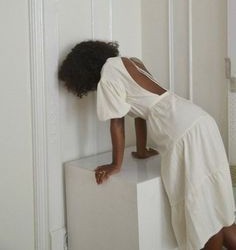

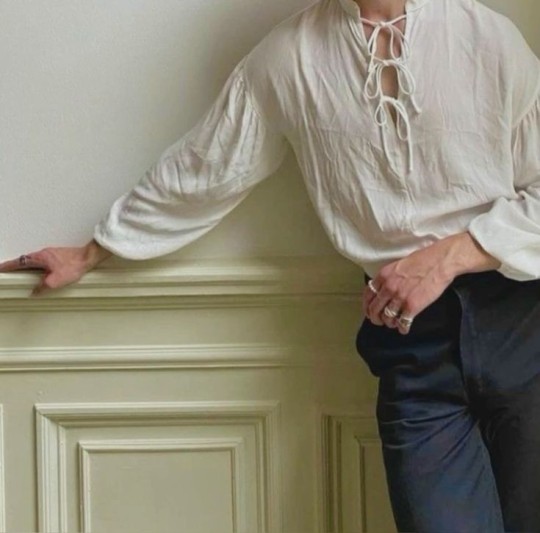
Bonus :
Years had passed, and the manor now echoed with a quiet happiness. Y/N and Cassius had built a peaceful life together, despite the weight of the past and the persistent whispers that ran through the empire. Now a respected countess and a beloved wife, Y/N had found her place, but a new trial had befallen her.
She was pregnant.
The news had been received with joy by her husband, but for Y/N, it carried an invisible weight on her shoulders. People talked. Superstitions spread through the streets, the salons, even the corridors of the estate. They whispered that she could only give birth to a child like her—one destined for darkness from their very first breath.
Y/N said nothing, but Cassius could see the turmoil in her delicate features, the exhaustion that had nothing to do with the pregnancy itself. Every caress on her belly was laced with a silent fear, a doubt that never truly left her.
— “Y/N… no matter what others say, our child will be loved, protected. They will never have to endure what you have.”
She didn’t answer, merely clutching the fabric of his tunic as if afraid to say something she would regret.
The hours were long, unbearable. Cassius had never felt so powerless. Y/N suffered, gasped, struggled. He stayed by her side, gripping her hand with a force that revealed his own anxiety. The midwives worked tirelessly around her, and finally, after hours of effort, a first cry rang out.
Their child was born.
A flood of emotions overwhelmed Cassius as he looked at the fragile little being in Y/N’s arms. His heart swelled with a love he had never thought possible. He pressed a kiss to his wife’s sweat-dampened forehead, whispering words of comfort.
But Y/N remained silent. Her face was pale, frozen in a troubling expression. Cassius first thought it was exhaustion, the toll of labor. But something was wrong.
At last, her voice broke the silence.
— “Cassius…”
He gently lifted his head, his fingers running tenderly through her damp hair.
— “Yes, my love?”
Y/N trembled slightly. Her hand tightened around the fabric of the blanket, and when she spoke again, her voice was hesitant, laced with deep fear.
— “Tell me… what does he look like?”
Cassius smiled softly, thinking he understood. He lowered his gaze to their child, ready to describe the features of the little life they had created.
— “He’s beautiful. He has your lips… and I think he has your nose too.”
But Y/N shook her head, interrupting his quiet admiration. Her hand clenched the sheets a little tighter.
— “No… I want to know…” She took a trembling breath. “Is he… normal?”
A heavy silence fell over the room.
Cassius felt a shiver run down his spine. For a moment, he struggled to understand what she meant. Then, everything became clear.
She wasn’t asking if he was handsome. Nor if he had her features.
She wanted to know if he was blind.
Suddenly, a quiet anger stirred within Cassius. Not at her, but at the world that had left such deep scars on his wife—scars that made her believe that being different meant being a mistake.
With infinite gentleness, he placed the baby in Y/N’s arms. She trembled slightly, as if afraid to hear his answer. He then knelt beside her, cupping her face in his hands, his heart pounding.
— “Listen to me, Y/N.” His voice was soft but firm, a blend of tenderness and conviction. “Our child was born with your blood, with your legacy. Whether they can see or not, they are perfect. They are ours. They are loved.”
Y/N’s lips trembled. She still didn’t dare to touch her baby’s face, as if fearing she would discover a fate already sealed.
Cassius gently took her hand and guided it to the round little cheek of their child.
— “Do you feel that? Their breath, their warmth. It’s not what others see that matters—it’s what we feel.”
Slowly, Y/N nodded, silent tears rolling down her cheeks.
— “They will be loved…” she finally murmured, as if making a promise to herself.
Cassius pressed a tender kiss to her forehead, then to their child’s.
— “More than anyone in this world.”
And in that room, illuminated by the flickering glow of candlelight, a new chapter began for them. A chapter where love triumphed over all beliefs. A chapter where Y/N, after years of doubting herself, finally learned that she had never been a burden or a mistake.
She was a miracle. And so was their child.
---
The days that followed were filled with a gentleness that Y/N had never known. Cassius watched over her and their child with almost exaggerated attentiveness. He worried about everything—whether she was eating enough, whether she was sleeping well, whether the baby was comfortable.
— "I’m fine, Cassius," she sighed one morning as he insisted on placing an extra pillow behind her head.
— "You say that, but you don’t realize how much exhaustion you’re accumulating."
Y/N smiled and reached out, a familiar gesture between them. Her fingers glided gently over his jawline, his nose, his lips.
— "You’re making that face where your brows are furrowed, aren’t you?"
Cassius sighed before pressing a kiss to her palm.
— "I’m just worried. You just gave birth, and…"
— "And you’ve become worse than an old nursemaid," she teased softly.
He pretended to be offended, but his smile betrayed him.
The whispers had not stopped. The rumor spread that the Countess’s child had been born blind. Nobles gossiped—some saw it as a curse, others offered false sympathy.
But Cassius let no one approach Y/N or their son with ill intentions.
One morning, as Y/N cradled their child, Cassius approached them.
— "He looks more and more like you," he said softly.
— "I wouldn’t know," she replied with a hint of amusement.
— "Then let me be your eyes."
Gently, he took her hand and placed it on the baby’s head.
— "His hair is fine, as dark as the night." He then guided her fingers over the baby’s soft, round cheek. "His skin is warm, delicate. And his lips…" He brushed them lightly with his fingers. "They’re like yours—full and gentle."
Y/N remained silent, savoring his words, her heart beating in time with the peaceful breathing of their child.
Then, as if by miracle, something unexpected happened.
The baby opened his eyes.
Cassius, who had never doubted his love for their child, froze for a moment. He had feared that Y/N would suffer if their child was like her, that she would feel an unjust sorrow.
But in that instant, all of it disappeared.
— "Y/N…" he murmured, his voice trembling.
She sensed his unease immediately.
— "What is it?" she asked.
— "His eyes." He swallowed hard. "They’re open."
Y/N’s own eyes widened slightly, though they saw nothing.
— "He… He can see?"
Cassius didn’t answer right away. He gazed at their son, at the bright, wide eyes staring back at them. The baby blinked a few times, curious, innocent. Then, he reached out his tiny fingers toward Y/N, seeking his mother’s touch.
A tear slipped down Cassius’s cheek.
— "Yes, Y/N… He can see."
A silence settled between them. Then, Y/N slowly nodded, her lips trembling slightly.
— "That’s good," she whispered.
Cassius had expected a stronger reaction—perhaps tears, a sob. But Y/N remained calm, her smile soft and serene.
— "You’re not… sad?" he dared to ask.
She shook her head.
— "No. Because it was never about normality. Just fear. Fear that he would go through what I have. But he never will. Because he has you. Because he has me."
Cassius took a deep breath, pulling his wife and son into his embrace.
— "He will always have us," he promised.
The years passed, and Cassius and Y/N’s son grew up surrounded by love. He was neither cursed nor a tragic legend, as the whispers of the past had claimed. He was simply a beloved child, a strong heir, carrying within his blood the story of a woman who had overcome darkness and a man who had learned that vengeance did not always bring peace—but love, it could.
Cassius never forgot the promise he had made to himself: Y/N would be happy.
And every day, he made sure of it.
---
The afternoon stretched lazily in Cassius’s study, bathed in golden light filtering through the large windows. Seated behind his desk, he held their six-month-old daughter, Evangeline, in his arms. She babbled softly, her tiny hands grasping at the buttons of his shirt.
Across the room, Y/N sat comfortably on a couch, gently caressing the face of their eldest son, Ambrose, as she listened to his enthusiastic murmurs about his latest "project." She had always had this tender habit—tracing the faces of those she loved to sense their expressions and guess their thoughts.
Cassius, who had been watching them for a while, finally sighed and said, half amused, half perplexed:
— "My dear… I think our son is strange."
Y/N raised an eyebrow in her husband’s direction before turning her head toward Ambrose.
— "Strange?"
Cassius nodded slowly while adjusting Evangeline against him.
— "He spends his time doing odd things. Just look at him. Or rather, listen to him."
Y/N listened carefully. Ambrose, only five years old, was kneeling on the rug, entirely focused on some mysterious activity. In front of him, feathers, books, and even a few gold coins were meticulously arranged in neat rows. He was whispering numbers as he counted, then stopped to adjust everything with an almost eerie precision.
Y/N reached out and gently ran her fingers over the top of his head.
— "Ambrose, what are you doing, my love?"
The child lifted his head seriously.
— "I’m putting everything in order, Mama. It’s important."
Cassius softly patted their sleeping daughter’s back before adding:
— "See? Yesterday, I caught him sorting my imperial seals by shades of red. And this morning, he refused to sit at the table because the chairs weren’t perfectly aligned."
Amused, Y/N stroked her son’s cheek.
— "He just likes things to be well organized."
— "No, no. It’s an obsession. The other day, I walked into his room and found him arranging pebbles… by size."
Ambrose frowned, crossing his small arms over his chest.
— "That’s logical. Big pebbles go with big ones, small ones with small ones. Why would you mix them?"
Y/N stifled a laugh while Cassius shook his head in exasperation.
— "You see? This isn’t normal. He has the mind of an old accountant before he’s even lost his first tooth."
Y/N placed a reassuring hand over her husband’s.
— "Maybe this is just his way of understanding the world. He inherited your attention to detail—you should be proud."
Cassius watched his son, who, after a brief hesitation, returned to aligning his objects with unwavering seriousness.
— "If he ever starts organizing my soldiers by height, that’s when I’ll sound the alarm."
Y/N burst into laughter, and after a moment, Ambrose smiled too.
Cassius let out one last sigh, kissed Evangeline’s head tenderly, then reached out to ruffle his son’s hair.
— "Alright, little genius. Keep aligning the world as you see fit… But I warn you, I refuse to have my county turned into a geometric arrangement someday."
Ambrose beamed proudly, and Y/N, her heart full of love for her family, intertwined her fingers with her husband’s.
Everything was exactly where it belonged.

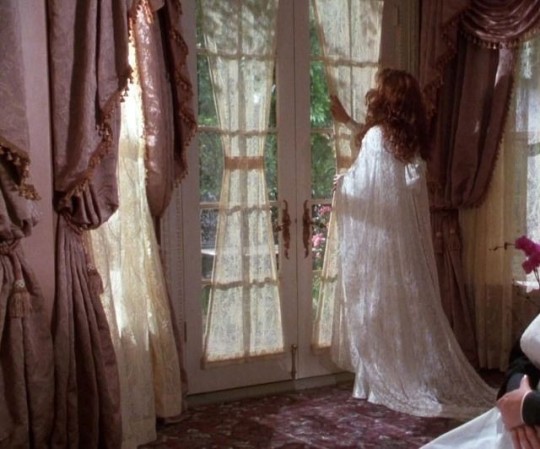
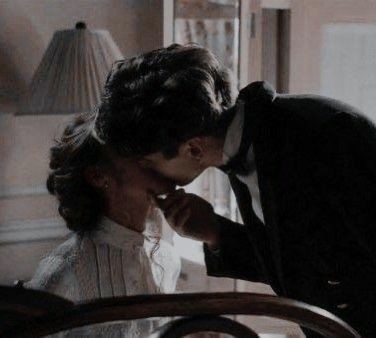
Tags list : @elizalabs3 @slvt4her
#yandere x darling#yandere x reader#yandere headcanons#yandere#ennemies to lovers#yandere manhwa x reader#yandere manwha#oldermen#older guys#older x younger#older men x fem reader#fem reader#x reader#black fem reader#x black reader#revenge era#revenge#blind reader#Spotify#victorian#victorian era#the countess#the count#servant#maid#jcw#black people#manwha#black writers#black writblr
316 notes
·
View notes
Text

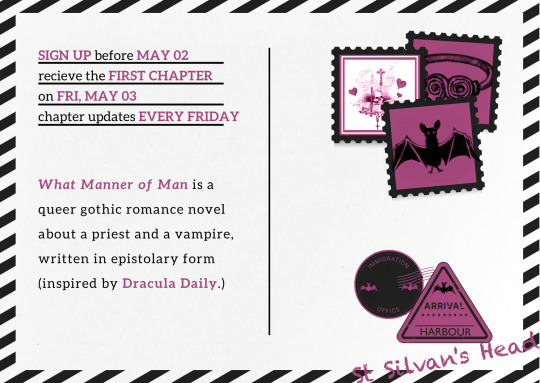
WHAT MANNER OF MAN has risen from the grave! 🦇
❧ Get weekly letters from Catholic priest and beautiful idiot Father Ardelian as he slowly succumbs to the vampire’s wicked allure.
❧ (And maybe comes to term with some things about himself along the way.)
❧ A tale of blasphemy, scandal, and sin!
❧ (Also presenting: swashbuckling lesbians with swords!)
SIGN UP HERE (for free!)


#dracula daily#Dark academia#books and libraries#vampire#writers on tumblr#goth#writeblr#books#vampires#victorian#gothic#dracula#dark academia aesthetic#literature#original post#what manner of man
841 notes
·
View notes
Text
me: *aroace* how do I write a date?
#ao3#codywan#ao3 writer#star wars#commander cody#obi wan kenobi#star wars au#ive decided its at a festival#does one bribe vendors to ensure it goes well?#or have i been interacting with too much batman media?#what does one talk about on a date as a mandalorian teen?#trauma?#they have chaperones like its a victorian era romance#...maybe ill go read some victorian era romances#writing advice#aroace#aromantic#asexual#i see you liking this and not actually helping me#wp writes
268 notes
·
View notes
Text

William Shakespeare
#dark academia#classic literature#classic#literature#dark academia aesthetic#poets on tumblr#writers and poets#poetry#poetic#classic books#classic beauty#classic poetry#london#poem#victoria#victorian
488 notes
·
View notes
Text
Get you a man who talks about you the way John Watson talks about Sherlock Homes.
#london#victorian era#writeblr#writers on tumblr#writing#sherlock holmes#arthur conan doyle#currently reading#john watson#i don’t ship them#but John is the best hypeman tbh#I want to be so loved that my flatmate writes several books about me
131 notes
·
View notes
Text


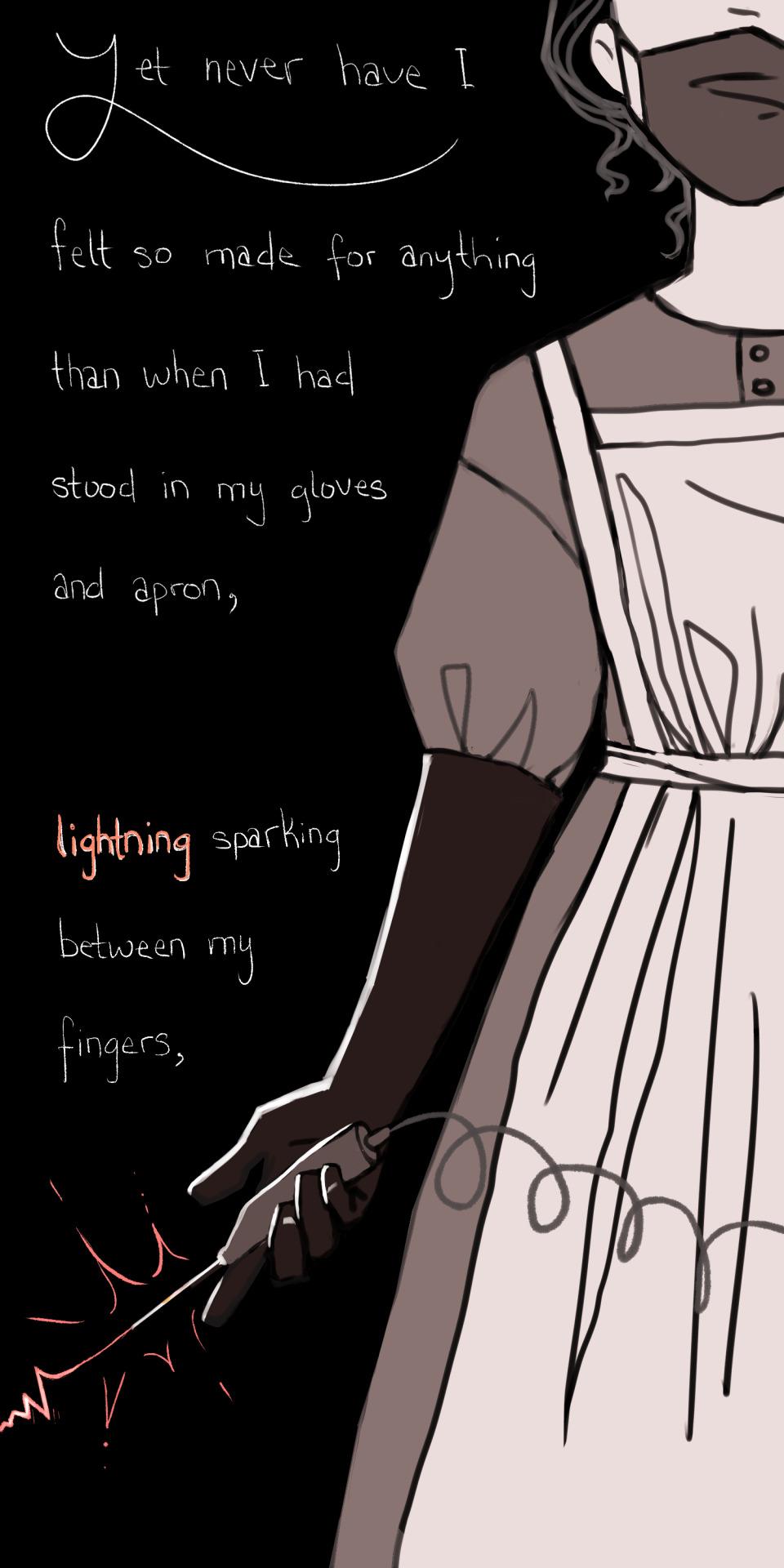

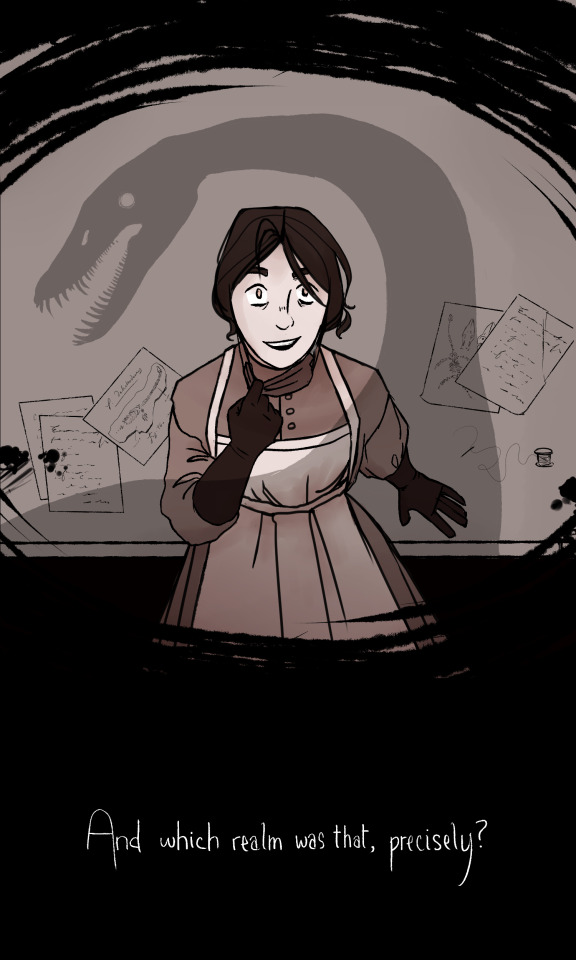
My beautiful unhinged daughter, Mary Elizabeth Frankenstein <3 I know this was not at all how the scene actually went, but humour me
(Pssssst everyone please read Our Hideous Progeny, pleaseee 🙏)
#Is it cringe to do fanart of your own book? Maybe so. But I DON'T CARE! :D#Attention everyone!!! I wrote a book and you should read it!!!!!#It's got mad science!! It's got sapphic Victorian yearning!! It's got Victor Frankenstein's great-niece!!#She's here she's queer and she's filled with rage for the systematic injustices of 19th century science! AND A ZOMBIE PLESIOSAUR!#Our Hideous Progeny#OHP#readblr#bookblr#queer books#book blogging#writers on tumblr#fantasy books#2023 books#books#fantasy#scifi#fantasy fiction#sapphic#speculative fiction#gothic#victorian gothic#gothic literature#gothic fiction#dark academia#victorian#victorian fiction#science fiction#sapphic books
840 notes
·
View notes
Text


The cardinal sin of pride
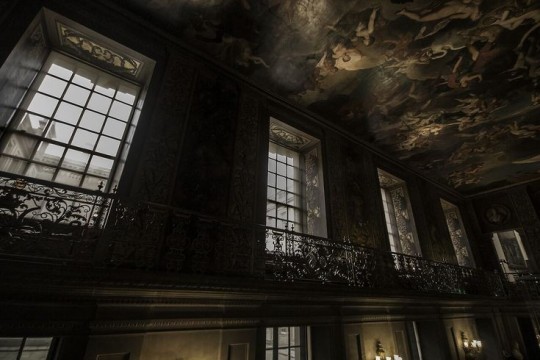
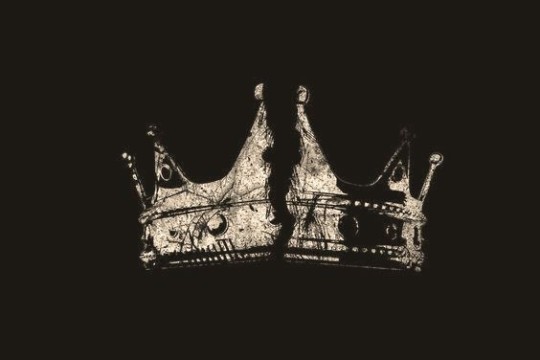
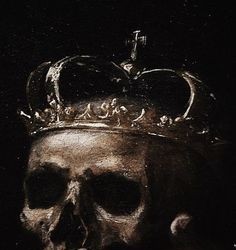
“Pride goes before destruction,
a haughty spirit before a fall”
@songs-of-venus
#literature#aesthetic board#dark academia moodboard#moodboard aesthetic#academia moodboard#moodboard#moodboards#aesthetic#dark academia#dark aesthetic#dark academism#dark academic aesthetic#pride#sin of pride#seven deadly sins#victorian#royalcore#fantasy#chaotic academia#chaotic academic aesthetic#writers#writing#reading#pics not mine#gothic academia#gothic#goth aesthetic#c.ven moodboards
81 notes
·
View notes
Text
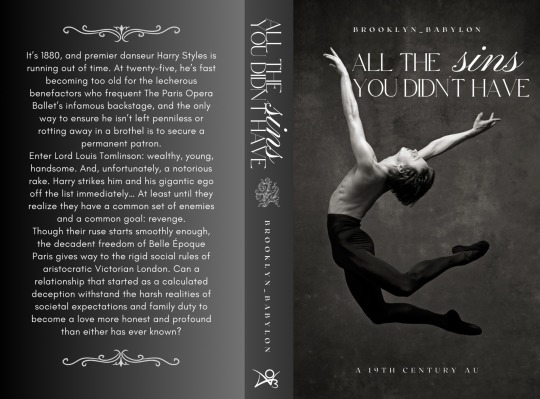







all the sins you didn't have by Brooklyn_Babylon ( @twopoppies )
It’s 1880, and premier danseur Harry Styles is running out of time. At twenty-five, he’s fast becoming too old for the lecherous benefactors who frequent The Paris Opera Ballet’s infamous backstage, and the only way to ensure he isn’t left penniless or rotting away in a brothel is to secure a permanent patron. Enter Lord Louis Tomlinson: wealthy, young, handsome. And, unfortunately, a notorious rake. Harry strikes him and his gigantic ego off the list immediately… At least until they realize they have a common set of enemies and a common goal: revenge. Though their ruse starts smoothly enough, the decadent freedom of Belle Époque Paris gives way to the rigid social rules of aristocratic Victorian London. Can a relationship that started as a calculated deception withstand the harsh realities of societal expectations and family duty to become a love more honest and profound than either has ever known?
#ao3#ao3 writer#one direction fanfiction#larry fanficion#thelarriefics#fanfiction book covers#trackinghome#hlcreators#strangers to lovers#fake/pretend relationship#99k#all the sins you didn’t have#brooklynbabylon#victorian au#belle epoque au
94 notes
·
View notes
Text

refusing to go to therapy not because it's inaccessible and 90% of therapists are evil but because im afraid it will make me a bad writer
#i mean on a real note the idea that any negativity or darkness in fiction is indicative of the writer being mentally ill is a deeply#conservative mindset. like some victorian shit.
65 notes
·
View notes
Text
Queen of the Damned...



#theaftersundown#queen of the damned#aaliyah#chester bennington#korn#korn band#2002#vampire#vampires#vampirism#lestat de lioncourt#the vampire lestat#queen akasha#dark romance#dark ambient#dark aesthetic#seduction#unrequited love#female writers#writers on tumblr#writerscommunity#romance novels#victorian#creative inspiration#love#im just a girl#so hot and sexy#hell is a teenage girl#girlblogging#goth
63 notes
·
View notes
Text
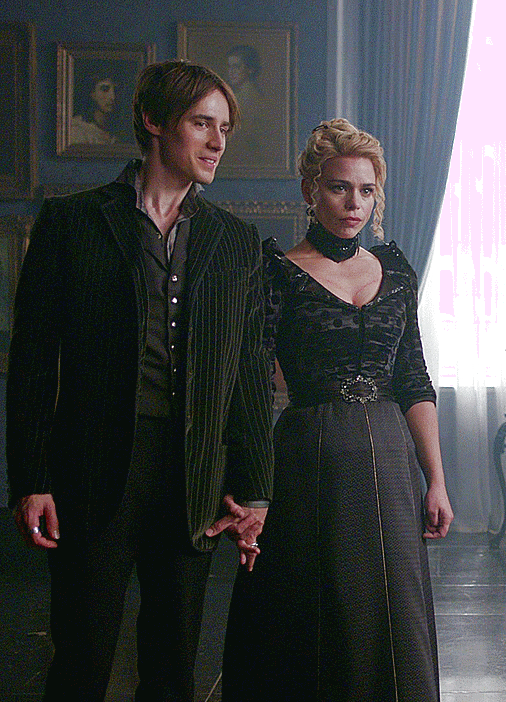


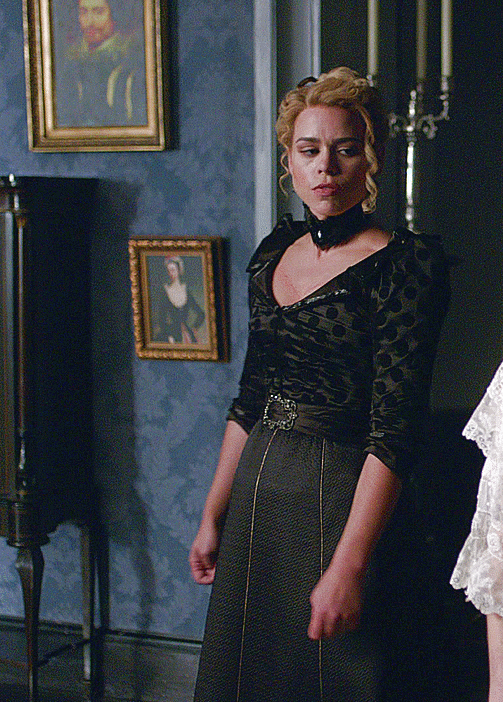

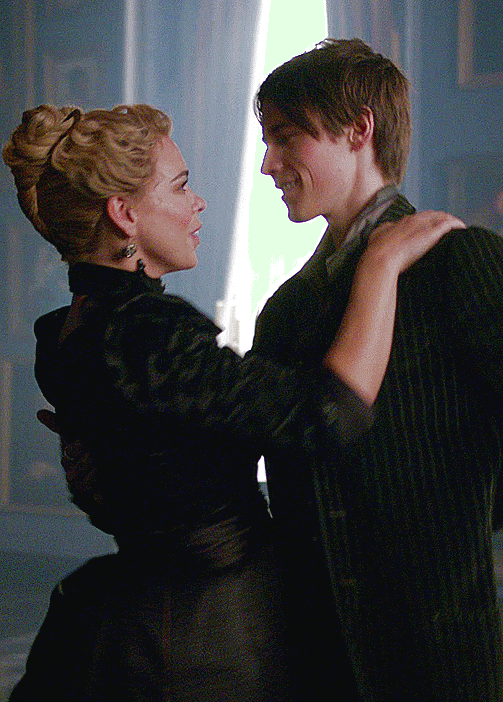
Lily & Dorian dancing again in matching black outfits in Penny Dreadful 3x02
#penny dreadful#lily#dorian gray#period drama#periodcostume#perioddramaedit#dancing#victorian era#reeve carney#billie piper#i so loved their dancing scenes#they were the perfect couple#and then the writers screwed it up
276 notes
·
View notes
Text

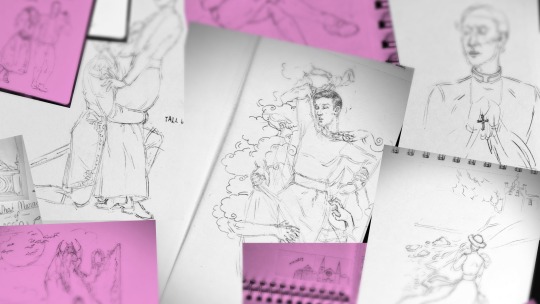
Now complete and free to read!
Father Ardelian has been summoned to a distant, secluded island to perform an exorcism. What will happen when he begins to suspect his host — the mysterious, nocturnal lord of the manor — of wanting him for another reason entirely? Will the piously celibate priest be able to resist his host’s diabolically seductive charms?
Read What Manner of Man here! 🦇
The tags do not lie:

#Dark academia#books and libraries#vampire#Dracula Daily#writers on tumblr#goth#writeblr#books#vampires#victorian#gothic#dracula#dark academia aesthetic#literature#original post#what manner of man
554 notes
·
View notes
Text
aight, so uh.... I haven't posted art in a while and I'm sorry💀
I will be doing this months challenge, I'll just have to see when
In the meantime, have some old sickfic sketches of an AU I never finished

I'm begging you to excuse the hands
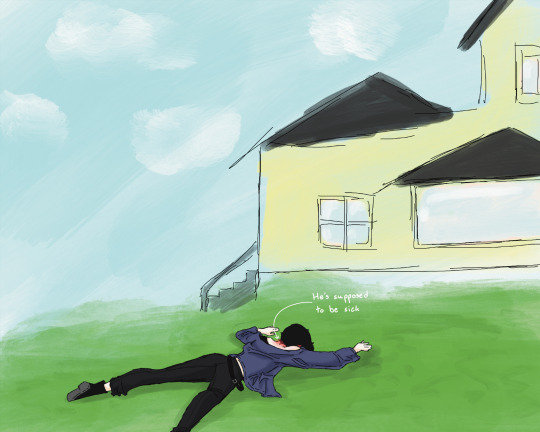
Originally, Buddy travels to Chase house after Ex Libris finds his location but underestimates the climate of wherever Chase lives. After not being appropriately dressed for a bunch of rainstorms he ends up getting horribly sick and passing out on Chase's lawn, right before he arrives at the house.
The next morning Prunella finds him and non-chalantly tells Chase that there's a stranger in his garden.
Naturally, Chase if conflicted and runs to get Deacon and right after telling Deacon off for wanting to get Buddy inside to take care of him(he's TOTALLY not projecting) they carry the unconscious goth into the house and lay him down on the couch until he wakes up.
There are some more things I want to draw for this
(Buddy cries after eating good soup; Buddy takes a hot bubble bath for the first time in his life -> it's a luxury for him, as Ex Lirbis only had cold rain water ig lmaoo💀💀)
But I'll see lol
#cinderella boy#cinderella boy webtoon#chase hollow#sickfic sketches#love sickfics#they're adorable#we need more sickfics in the cb community#writers#I'm boutta challenge you#watch out#also I KNOW the outfit I gave Buddy in the second panel doesn't match the first ok😭😭#I didn't want to change it last second#Lord forgive me for I have commited the greatest sin#I've put Buddy in non victorian era clothing#I am sorry
106 notes
·
View notes
